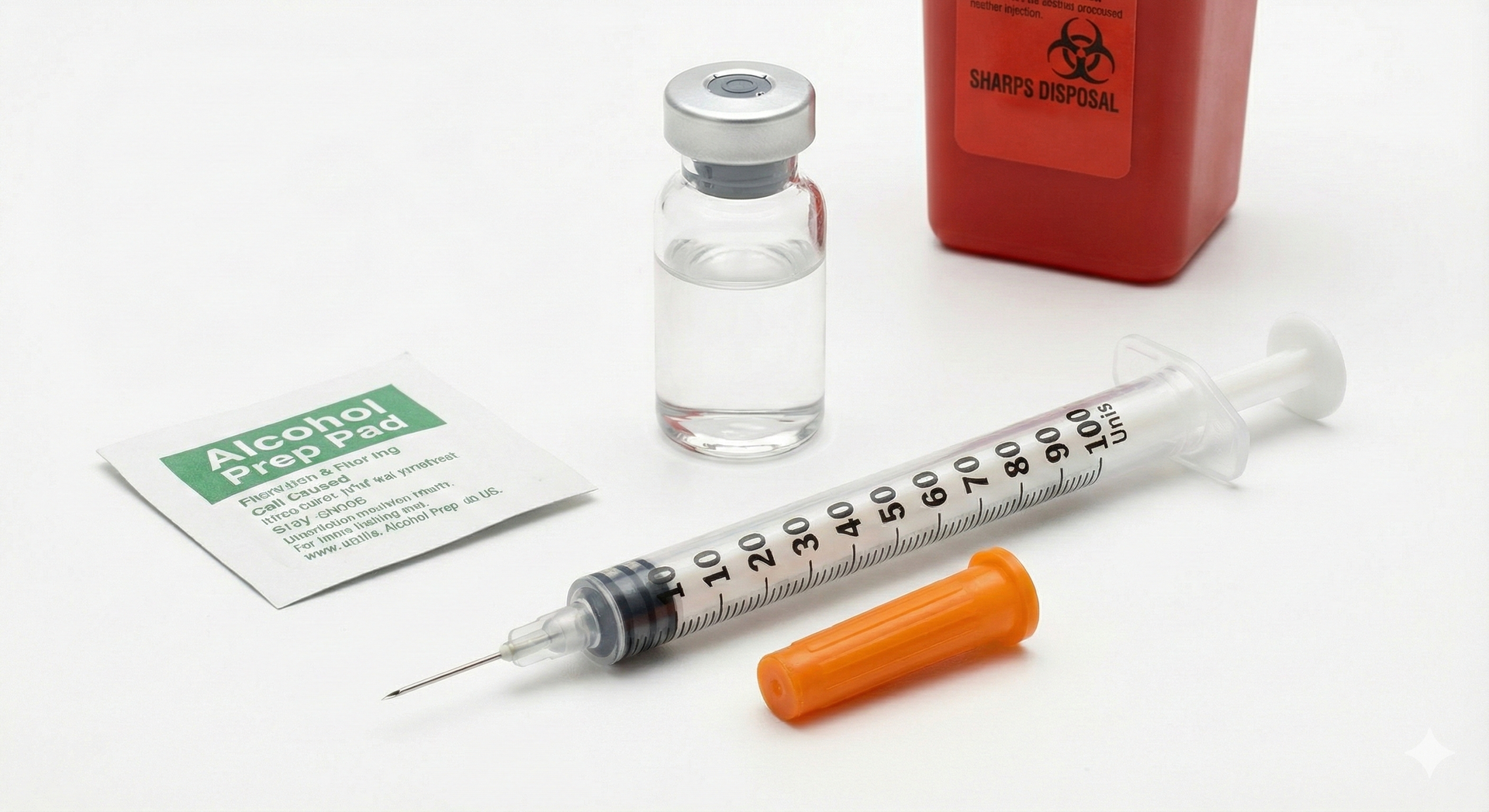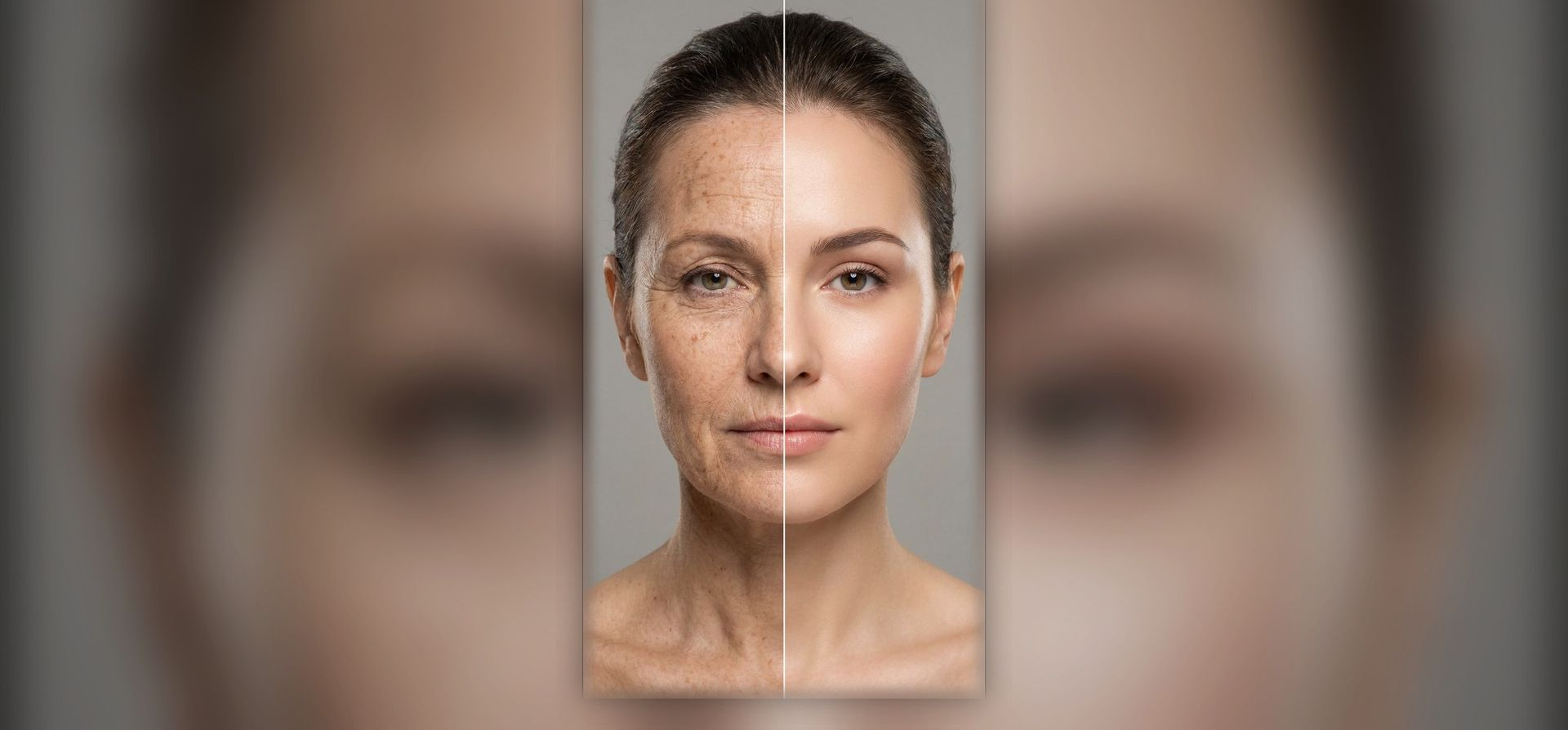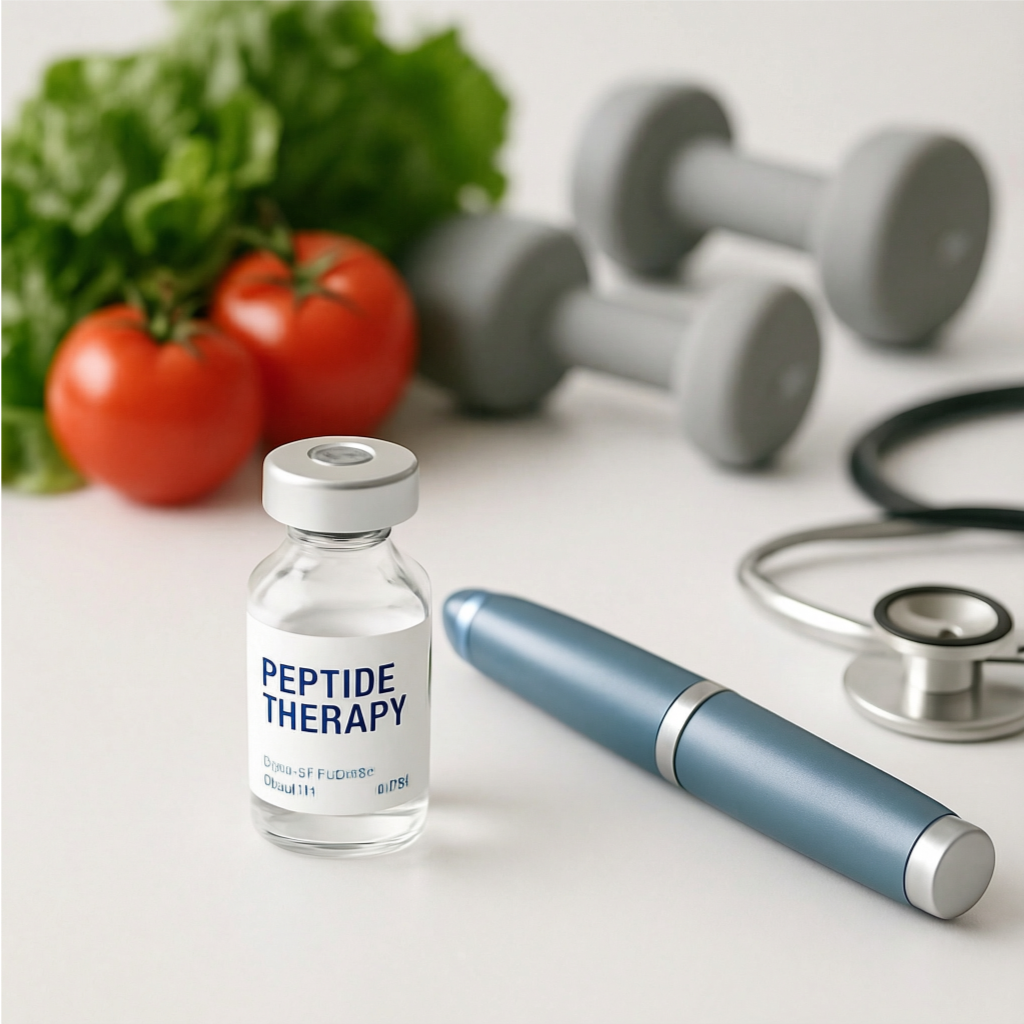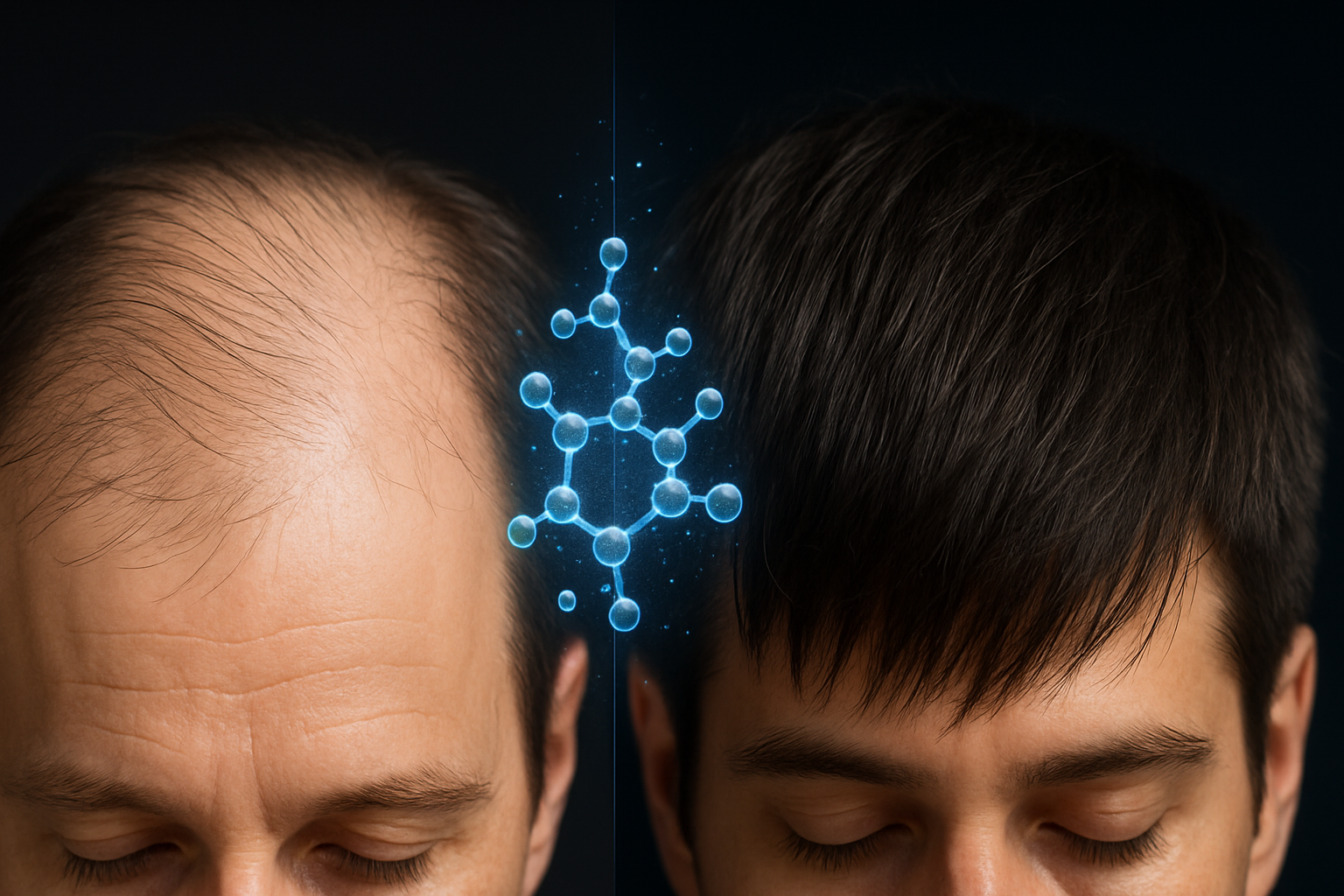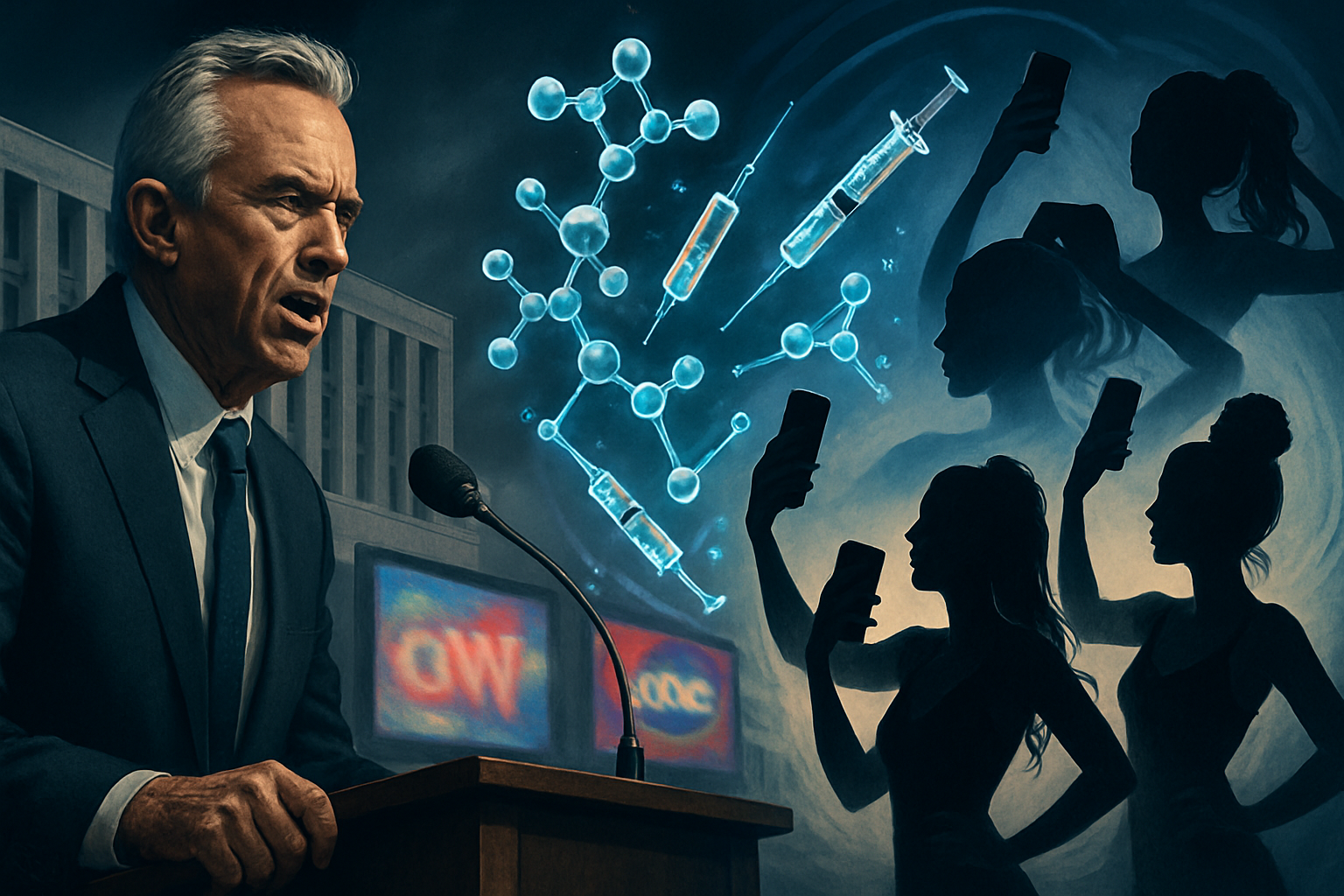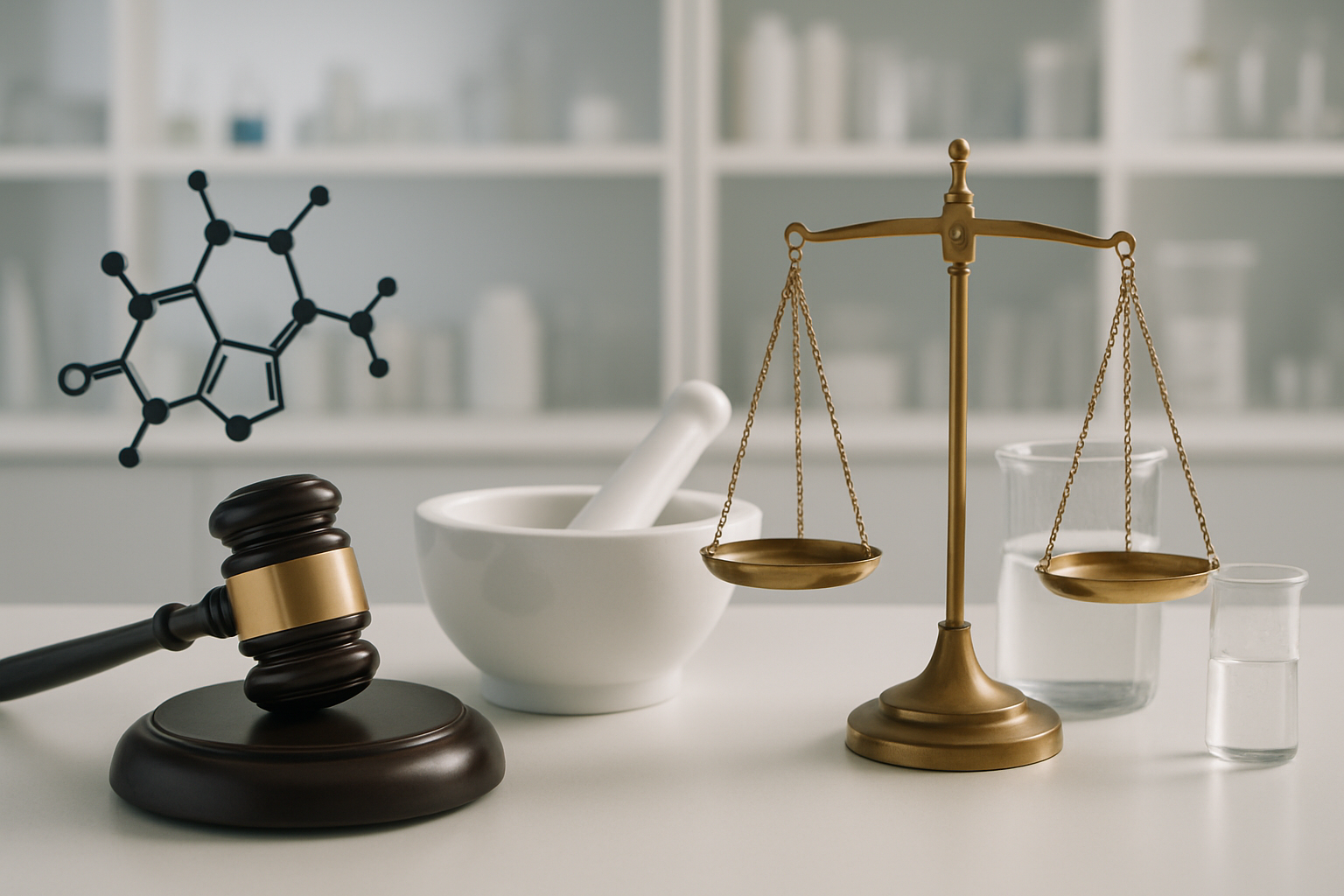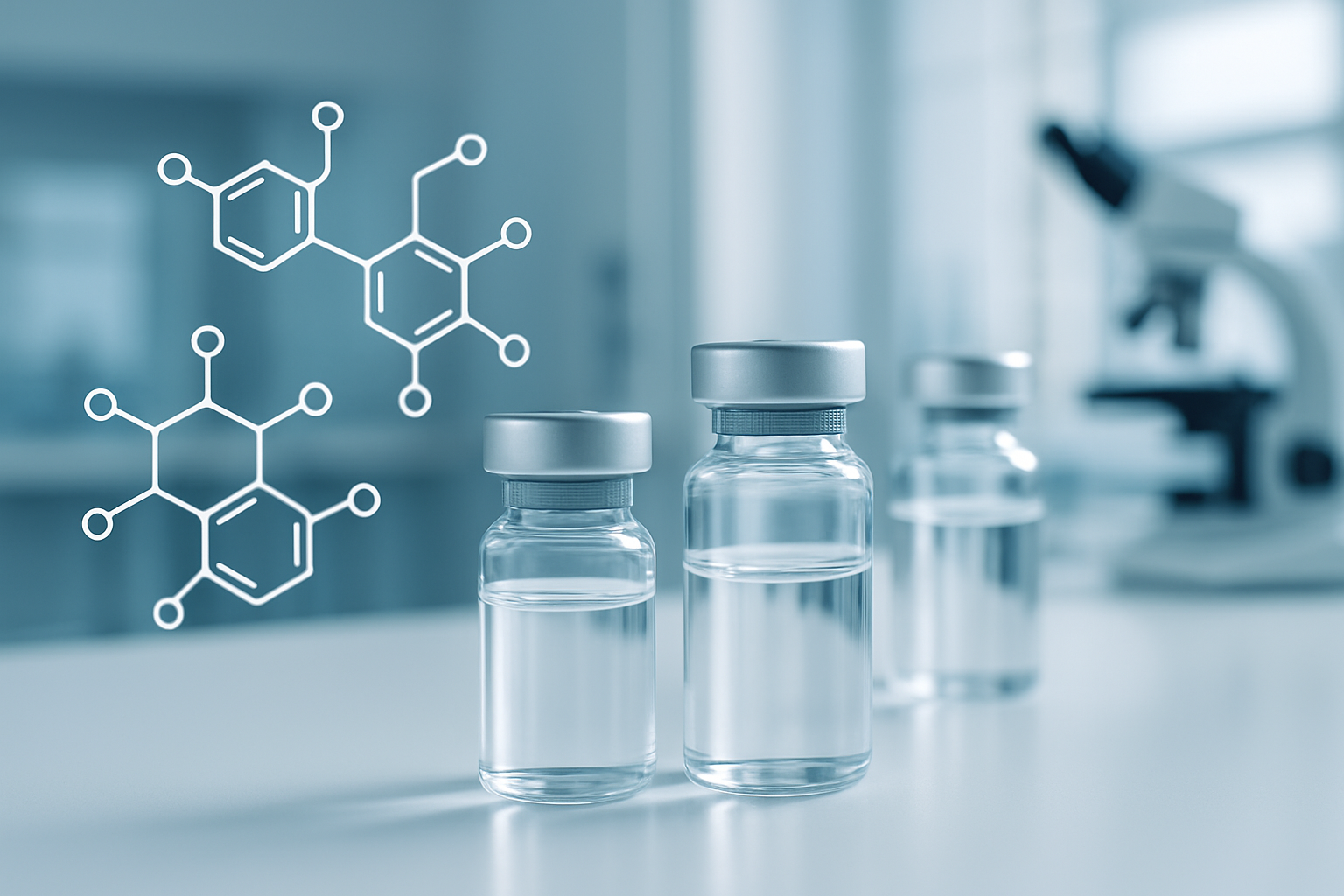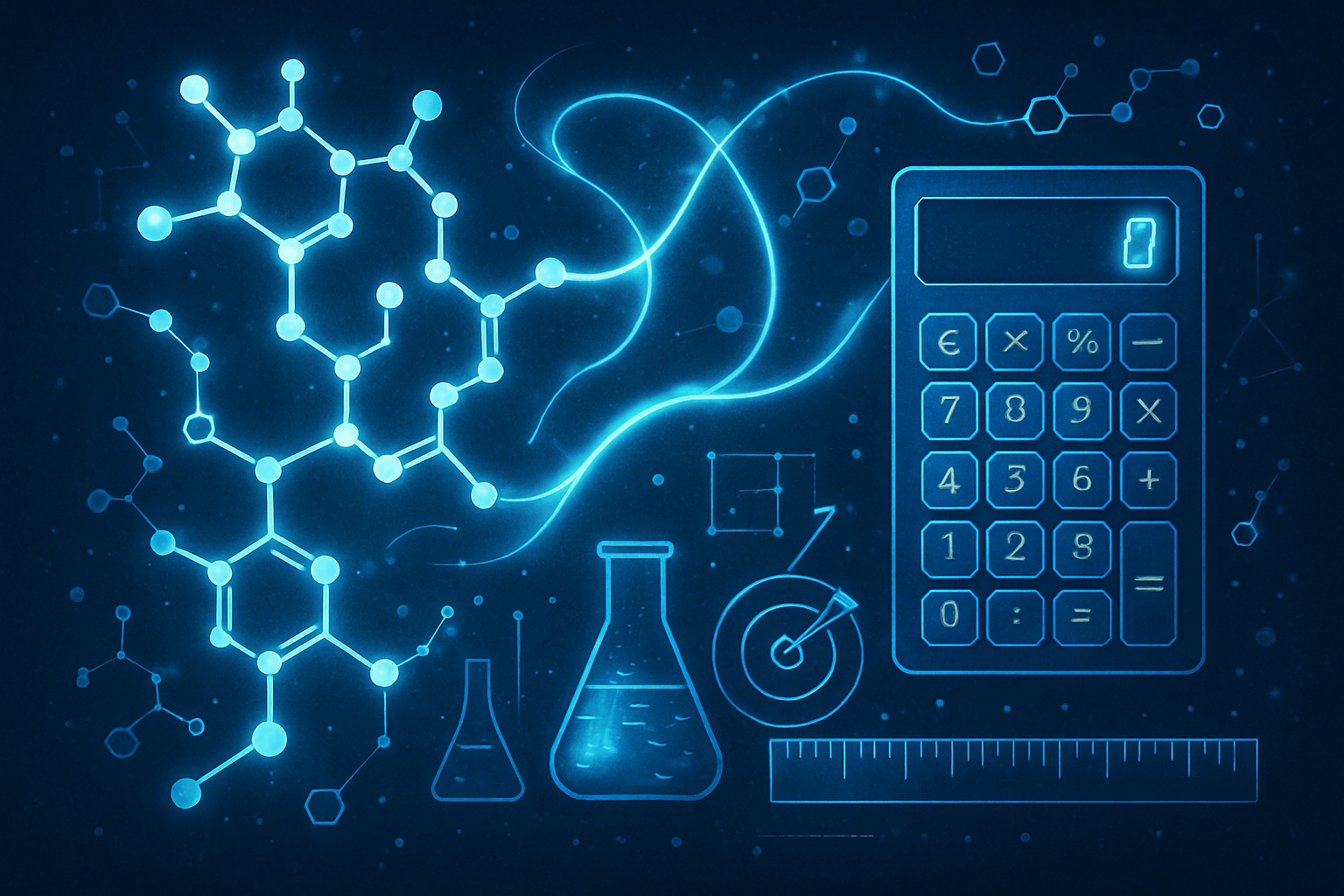The "Fountain of Youth" Shot That's Got Scientists Stunned
How a Little-Known Copper Peptide is Revolutionizing Skin Repair, Hair Growth, and Age Reversal

The quest for eternal youth isn't new—humans have been searching for ways to turn back time for centuries. But what if the answer was hiding in our own blood all along? Enter GHK-Cu, a naturally occurring copper peptide that's making researchers around the world sit up and take notice.
This isn't just another skincare fad. Since its discovery in human plasma back in the 1970s, GHK-Cu has proven itself to be remarkably versatile. We're talking about a single compound that can stimulate collagen production, speed up wound healing, regrow thinning hair, and even influence the genes responsible for aging.
What's particularly fascinating is how this tripeptide seems to work on multiple fronts simultaneously. Scientists initially studied it for wound healing, but they quickly realized its potential extends far beyond basic skin repair. Today, researchers are exploring its applications in everything from anti-aging protocols to neurological repair—and the results are genuinely impressive.
What Exactly Is GHK-Cu?
GHK-Cu stands for Glycyl-L-Histidyl-L-Lysine-Copper, which is essentially a small protein fragment (tripeptide) bound to a copper ion. Think of it as nature's own repair signal—when your body detects tissue damage, it naturally increases GHK-Cu production to kickstart the healing process.
The copper component isn't just along for the ride. Copper plays a crucial role in collagen and elastin synthesis, which explains why GHK-Cu is so effective at improving skin texture and reducing wrinkles. But here's where it gets interesting: this peptide doesn't just patch things up. It actually appears to reset cellular function to a more youthful state.
Dr. Loren Pickart, who first identified GHK-Cu, discovered that it can influence over 4,000 genes—many of which are directly linked to aging processes. Some genes get turned on, others get turned off, but the overall effect seems to favor cellular repair and regeneration over deterioration.
The Science Behind the Anti-Aging Effects
Collagen Production and Skin Repair
One of GHK-Cu's most well-documented effects is its ability to boost collagen production. Clinical studies have shown increases of up to 70% in collagen synthesis within just a few weeks of treatment. This isn't just theoretical—people using GHK-Cu consistently report firmer, more elastic skin with fewer fine lines and wrinkles.
The peptide works by activating fibroblasts, the cells responsible for producing collagen, elastin, and other structural proteins. It also helps remove damaged collagen that can make skin look aged and leathery. This dual action—building new collagen while clearing out the old—creates a comprehensive skin renewal effect.
Hair Regrowth and Follicle Stimulation
Perhaps even more impressive are the results researchers have seen with hair regrowth. GHK-Cu appears to extend the growth phase of hair follicles while simultaneously increasing follicle size. In clinical trials, participants experienced not only increased hair growth but also thicker, stronger hair strands.
The mechanism here involves improving blood flow to hair follicles and reducing inflammation that can contribute to hair loss. Some studies have shown hair growth improvements comparable to or even better than traditional treatments like minoxidil.
Wound Healing and Tissue Regeneration
GHK-Cu's wound healing properties are perhaps its most established benefit. The peptide accelerates every stage of the healing process: it attracts immune cells to clear damaged tissue, stimulates blood vessel formation to improve nutrient delivery, and promotes the growth of new, healthy tissue.
What sets GHK-Cu apart from other healing compounds is how clean the repair process is. Instead of forming thick, obvious scars, tissue healed with GHK-Cu often looks remarkably close to the original, undamaged state.
Neurological and Cognitive Benefits
Recent research has uncovered something unexpected: GHK-Cu might also benefit brain health. Animal studies have shown improvements in cognitive function and even some protection against neurodegenerative diseases.
The exact mechanisms aren't fully understood yet, but researchers believe GHK-Cu's anti-inflammatory properties and its ability to promote blood vessel formation play key roles. Better circulation means better oxygen and nutrient delivery to brain tissue, while reduced inflammation can help protect neurons from damage.
How GHK-Cu Is Typically Used
GHK-Cu is available in several forms, each with different applications and absorption rates:
- Topical creams and serums are the most common options for skincare applications. These are generally well-tolerated and show good results for surface-level skin improvements.
- Injectable forms offer the most dramatic results but require proper medical supervision. This is typically where people see the most significant anti-aging effects.
- Oral supplements are becoming more popular, though absorption can be variable. Some people prefer this method for its convenience and potential systemic benefits.
The concentration and delivery method can significantly impact results. Professional-grade treatments typically use higher concentrations than over-the-counter products, which explains why clinical results are often more dramatic than home-use outcomes.
Safety Profile and Considerations
One of GHK-Cu's biggest advantages is its excellent safety profile. Because it's naturally present in human plasma, the body recognizes and processes it without the adverse reactions often seen with synthetic compounds.
Side effects are generally mild and temporary. Some people experience slight irritation when first using topical formulations, but this usually subsides within a few days. Injectable forms may cause temporary redness or swelling at the injection site.
However, it's worth noting that research on long-term use is still limited. While short-term studies show consistently positive results, we don't yet have decades of data on sustained GHK-Cu supplementation.
The Future of GHK-Cu Research
The scientific community's interest in GHK-Cu continues to grow. Current research is exploring its potential applications in treating age-related diseases, improving athletic recovery, and even extending healthy lifespan.
Some of the most exciting ongoing studies focus on GHK-Cu's gene expression effects. If researchers can fully map which genes are influenced and how, it could lead to even more targeted anti-aging interventions.
There's also growing interest in combination therapies—using GHK-Cu alongside other longevity compounds to create synergistic effects. Early results from these combination studies are promising, though more research is needed to establish optimal protocols.
Is GHK-Cu Right for You?
While GHK-Cu shows tremendous promise, it's not necessarily the right choice for everyone. People looking for subtle skin improvements might be perfectly satisfied with topical formulations, while those seeking more dramatic anti-aging effects might need professional-grade treatments.
The best candidates for GHK-Cu therapy are typically adults showing early to moderate signs of aging who want to take a proactive approach to skin health and longevity. People with specific conditions like androgenic alopecia or slow-healing wounds might see particularly impressive results.
As with any treatment that affects multiple body systems, it's wise to consult with a healthcare provider before starting GHK-Cu, especially if you're considering injectable forms or have existing medical conditions.
GHK-Cu represents a fascinating intersection of regenerative medicine and anti-aging science. While we're still learning about its full potential, the current evidence suggests this naturally occurring peptide could indeed be one of the most powerful tools we have for maintaining youthful function as we age.
Ready to Unlock Your Body's Full Potential?
If you're fascinated by cutting-edge compounds like GHK-Cu and want to stay ahead of the latest breakthroughs in longevity science, you need the Project Biohacking Newsletter in your inbox.
Every week, we dive deep into the most promising anti-aging research, decode complex scientific studies, and share actionable protocols you can actually use. From peptide therapies and nootropics to advanced recovery techniques and metabolic optimization—we cover it all.
What you'll get:
- Weekly breakdowns of the latest longevity research
- Practical biohacking protocols and dosing guides
- Expert interviews with leading researchers and clinicians
- Early access to emerging compounds before they go mainstream
- Science-backed strategies to optimize your healthspan
Join thousands of biohackers, researchers, and longevity enthusiasts who rely on Project Biohacking to stay at the forefront of human optimization.
Subscribe to Project Biohacking Newsletter →
Because the future of aging belongs to those who act on today's science.
Disclaimer: The information in this newsletter is for educational purposes only and is not intended as medical advice. Always consult with a qualified healthcare provider before starting any new supplement or treatment protocol.

